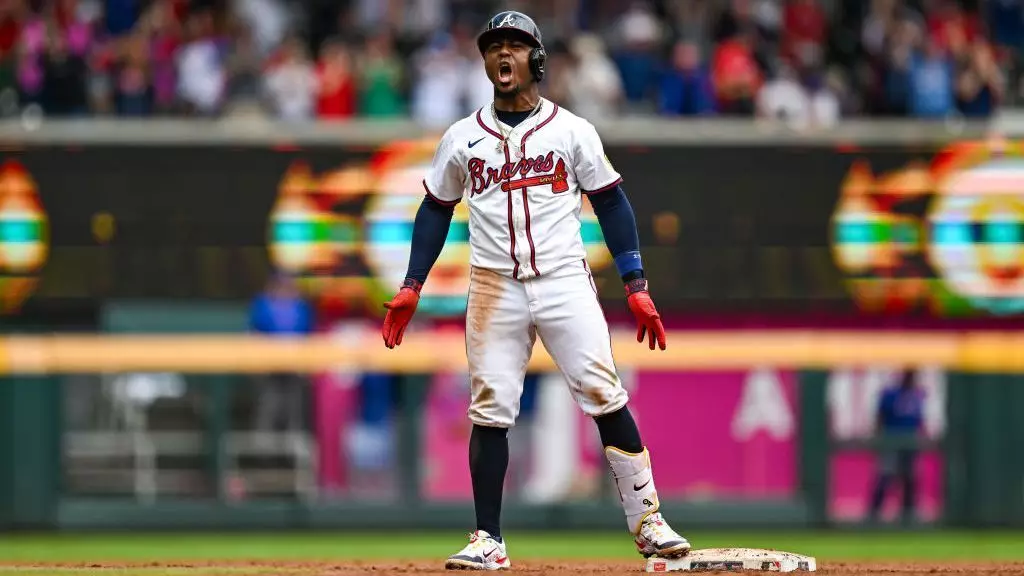In an intense showdown that will be etched in baseball lore, the Atlanta Braves and New York Mets faced off in a much-anticipated doubleheader, both teams vying for playoff positioning. These two titans of the National League delivered a rollercoaster of emotions for fans and players alike, culminating in a split that further solidified their entries into the postseason. However, it wasn’t just the game’s tension that had eyes glued to the field; pressing news and crucial injuries added layers of complexity to an already dramatic affair.
Game 1 had all the hallmarks of a classic, showcasing how unpredictable baseball can be. Beginning with the Braves establishing an early lead of 3-0, everything seemed to be going their way. However, the Mets countered fiercely, claiming the lead after a stunning six-run inning that flipped the script in the eighth. The tension was palpable as fans witnessed both teams’ closers falter, displaying the kind of fluctuation in performance that can haunt players throughout their careers.
As momentum shifted back and forth, a highlight moment came when Francisco Lindor of the Mets hit a two-run home run in the top of the ninth, securing his team’s first game victory. The home run not only showcased Lindor’s power but also emphasized the unpredictable nature of the matchup. It served as a perfect reminder of how a single swing can change the game’s tides in an instant.
While the on-field drama unfolded, a significant off-field revelation loomed over the Braves’ organization. The news regarding their ace pitcher, Chris Sale, being scratched due to back spasms reverberated throughout the stadium. Braves manager Brian Snitker shared that they had just learned of Sale’s inability to play shortly before Game 1 commenced. His presence on the mound would have undoubtedly changed the dynamic of the subsequent game, making it a prime opportunity to reflect on the pressure of managing a team in high-stakes situations.
With Sale sidelined, the challenges mounted for Snitker and his staff, who had to recalibrate strategies on the fly. The replacement pitcher, Grant Holmes, stepped into the spotlight, showing resilience in the face of adversity. After spending the majority of the last decade in the minor leagues, Holmes tossed an impressive four innings to help secure a game two victory. His success is a testament to the importance of having versatile players who can perform under pressure.
Injuries have been a pervasive theme for the Braves this season, with multiple key players, including Spencer Strider and Ronald Acuña Jr., absent due to various physical ailments. Notably, Ozzie Albies emerged not just as a capable stand-in, but as a star in the making, thriving despite adversity. In Game 2, Albies managed to reach base five times and drove in five runs, an exceptional performance that underscores his resilience and capability during critical moments. His return after an extended injury was a significant confidence booster for the Braves and a source of inspiration for his teammates navigating through turbulent circumstances.
Furthermore, Snitker’s strategy of employing all available pitchers speaks volumes about the unpredictable landscape of playoff baseball. His frank acknowledgment that the heavy usage of players would shape their playoff roster highlights the balancing act managers face during emotionally charged games—they don’t just manage the present; they also have to strategize for the future.
As both teams prepare for the playoffs, the significance of this doubleheader extends far beyond the scores. For the Braves, reassessing their pitching rotation in light of Sale’s health issues and the fatigue from their pitchers will be essential. The decision-making process surrounding Game 1’s failures and the subsequent success of Game 2 reflects the complexities involved in navigating through high-stake scenarios.
Additionally, the Braves will have to keep pace with their competitors while capitalizing on their remaining strengths. With players like Albies providing stellar performances, the foundation for a deep playoff run is still intact, even if it means leaning on less experienced players in crucial moments.
The gripping contest between the Braves and Mets not only served as a thrilling highlight of the regular season but also illuminated the intricacies and challenges that teams face as they gear up for postseason action. As anticipation builds for the next chapter, the lessons learned from this doubleheader will certainly cast a long shadow on the impending playoffs.


Leave a Reply